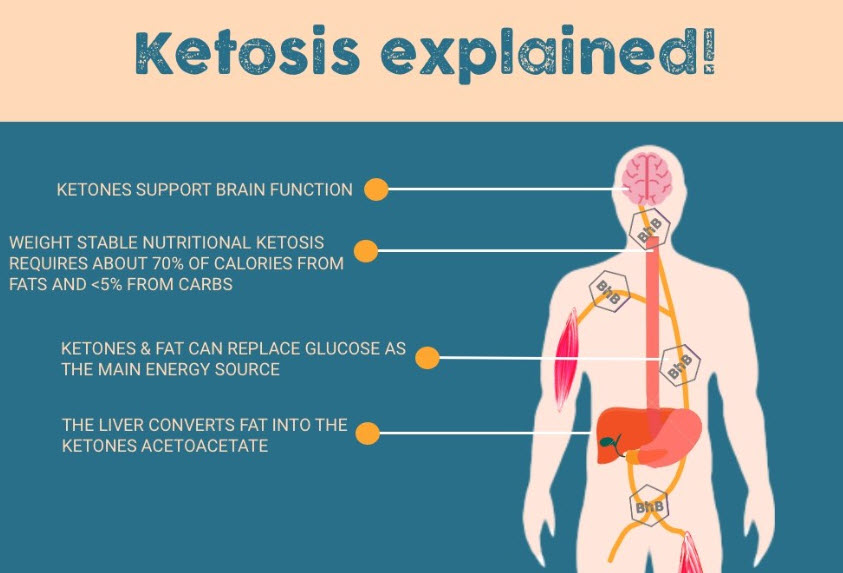Intermittent fasting is a popular dietary trend that can benefit people with pre-diabetes and type 2 diabetes. It improves insulin sensitivity by increasing weight loss and decreasing blood levels of both leptin and adiponectin.
It also promotes healthier aging by activating AMPK in the low energy state of fasting. However, patients should monitor their blood sugar and take medications (including insulin and sulfonylureas) carefully on non-fasting days.
What is Insulin Sensitivity?
Insulin sensitivity is how well your body's cells use blood sugar for energy. Insulin is a hormone that your pancreas secretes after you eat, allowing cells (like muscle and fat) to uptake glucose from the blood. High insulin sensitivity means you need less insulin to bring down blood sugar levels after meals, decreasing your risk of type 2 diabetes and other chronic diseases.
Several factors can affect insulin sensitivity, including poor sleep quality, stress, and diet. For example, a 2014 study found that eating a diet high in soluble fiber may delay gastric emptying, decreasing insulin resistance.
Exercise and weight loss are also effective ways to improve insulin sensitivity, although these are better combined with a healthy diet. Studies have shown that people who practice intermittent fasting, such as a 16:8 time-restricted diet or alternate day fasting, see greater improvements in insulin sensitivity than those who do not fast. (4)
How Can Intermittent Fasting Help Me Improve It?
When you eat, your body breaks down food into glucose (sugar) that your cells use for energy. Insulin signals your cells to open up and accept this fuel. When your cells don’t receive the signal, glucose stays in your bloodstream and gets stored as fat.
Intermittent fasting involves alternating periods of eating and fasting. During the eating window, you consume nutritious foods and healthy carbohydrates. The fasting period is an opportunity for your body to rest and reset. Your insulin levels drop during the fast, facilitating fat burning and improving insulin sensitivity.
Several intermittent fasting protocols exist, including the 16/8 time-restricted feeding method and 5:2 eating plan. Intermittent fasting is safe for many people, but it’s important to consult your physician before making changes to your diet. You should also make sure that any dietary changes work with your diabetes management regimen. This includes monitoring your glucose and insulin levels before and after meals. This will help prevent any complications like hypoglycemia or hyperglycemia.
What Are the Benefits of Intermittent Fasting?
Intermittent fasting offers a variety of benefits, including weight loss and improved metabolic health. A primary benefit of intermittent fasting is a decrease in insulin resistance. When you eat, your body breaks down food into glucose, which enters the bloodstream and raises insulin levels.
Insulin resistance improves when your body is given the chance to rest, which happens during intermittent fasting. Research shows that alternate-day fasting reduces insulin by 3-6% and triglyceride levels by 20-31%.
This is mainly because intermittent fasting promotes a lower overall calorie intake, which can help with weight loss and improving metabolic health. It also appears to promote the release of a hormone called adiponectin, which is associated with higher insulin sensitivity. However, it's important to note that you must eat a healthy diet on non-fasting days. Otherwise, the opposite effect may occur. The best way to determine if intermittent fasting is right for you is to talk with your doctor or registered dietitian.
What Are the Risks of Intermittent Fasting?
Many diet and exercise trends become popular for their purported health benefits, but often the facts get distorted as they reach the mainstream. One example is intermittent fasting, which has been making headlines for its purported ability to improve weight loss, blood sugar and lipid levels.
For those not familiar with intermittent fasting, it is a type of eating plan that allows you to eat whatever you want on certain days but restricts the number of hours each day you can eat. It’s also important to remember that you should drink plenty of water or broth during the fasting periods, as this helps avoid dehydration.
There are some risks involved in intermittent fasting, including low blood sugar and hunger that can cause stress on your body and hormones. If you are diabetic, it’s especially important to consult your doctor before trying this type of diet, as it can interfere with insulin and other medications you take for your condition.
Frequently Asked Questions
What is permissible and what is not during intermittent fasting
Understanding the rules of intermittent fasting is imperative to achieving desired results. You don't have to eat less, but you should ensure that you eat the right food at the right times.
Intermittent Fasting refers to times when you will only eat food, and other times when you must eat fewer calories. These "fasting windows" can last anywhere from 16 to 24 hrs, giving your body plenty of time to digest and cleanse difficult-to-digestible foods, as well as to speed up your metabolism.
You don't have to fast during these times. These are the best times to drink nutrient-rich drinks like tea, lemon water, and water. There are also calorie-free options, such as fruits and vegetables. The only restriction is that they can't be accompanied by any additional fat or oils.
This isn't an excuse for a free-for-all on high-calorie foods and sugary treats when you come out of your fast either - it does pay to maintain healthy eating habits overall. Only once the recommended amount of fasted hours has passed can you consider adding processed snacks like chips or other unhealthy options, as these will quickly undo all your hard work! You should aim to consume low-glycemic index foods in your feeding windows, and instead focus on nutritious options like whole grains and lean proteins.
Remember that intermittent fasting does not work for everyone. Everyone's body is different and will respond differently to the same diet. Consult a doctor or nutritionist before you embark on any new diet plan. This is especially important if there are any existing health conditions. It is important to get enough sleep, as well as staying hydrated, throughout this process.
Can I drink water if I am intermittent fasting?
Yes, water can be drank while intermittent fasting. You should stay hydrated while fasting as it helps to maintain your body's balance. You can flush certain vitamins and minerals out of your body via sweat and urine if you fast for a long time. This is why it is so important to keep hydrated. Water is also good for digestion and detoxification, helping to flush out toxins. Ultimately, staying hydrated is essential to a successful intermittent fasting regime and should not be neglected!
You can eat as much as you like while intermittent fasting, and still lose weight.
Are you looking to enjoy all the benefits of intermittent fasting while still being able to eat what your heart desires? The answer is yes! Intermittent fasting, which allows you to eat your favourite foods while losing weight, is possible.
Intermittent fasting can be very effective in helping you lose weight. It is possible to do this by being careful with your planning and exercising discipline. You can tailor your eating schedule and include your favorite foods in your diet. You'll also need to pay close attention to portion sizes and how many additional calories come from snacks or extras like sauces or dressings.
Balance is the key when it comes intermittent fasting. Studies have shown this. The beneficial effects of fasting for 16-20 hour a day can't be countered by a few delicious meals. Intermittent fasting helps increase fat burning, reduce hunger signalling, and improve overall mental clarity.
Intermittent fasting is a great way to transform your lifestyle and not sacrifice what you love. It is possible to eat with purpose and enjoy tasty foods, while drastically reducing calories. Don't wait! Get started today to see the amazing benefits of intermittent fasting.
What does science say about intermittent fasting
Exploring science's understanding of the benefits of intermittent fasting can lead to breakthroughs in lifestyle nutrition. Intermittent fasting involves strategically eating meals only during a specific time period and abstaining for the rest of the day. Research suggests that fasting can increase metabolic health and improve cognitive performance when done properly.
Unravelling how this works involves examining what happens inside our bodies during intermittent fasting. Intermittent fasting causes a shift in metabolism by lowering sugar levels and encouraging cells switch to fat for primary energy. Intermittent fasting aids in weight loss because it burns stored fat and not on the recent food eaten for energy. In addition, it encourages the use of glucose which is essential for normal metabolic function.
Research into intermittent fasting shows that this may promote increased autophagy* and have anti-aging properties. Autophagy is a term that means "self-eating". It refers to a crucial cellular process where damaged or unutilized proteins are recycled to sustain healthy cells all through life. While there is still much to learn about this potential benefit, we are optimistic about what we know.
Intermittent fasting is shown to be beneficial for overall health. However consulting your doctor before making any changes is highly recommended. Healthy lifestyle modifications should not be done quickly. You should seek to balance your diet with your exercise routine.
What evidence does the research have to say about intermittent fasting as a way to lose weight?
You may be surprised at the possibilities of intermittent fasting and weight reduction. Study after study suggests that changing your eating habits throughout a day can improve overall health and weight management. Studies also show that structured fasting can increase metabolism, decrease food cravings, promote fat loss, and reduce inflammation.
Intermittent eating is a novel concept that takes into account several physiological processes. This process can help improve health outcomes as well as weight loss. Recent studies have linked this practice with better insulin sensitivity, improved cellular repair processes, boosted hormone balance and metabolic functions, plus favourable changes in bacterial populations.
These lifestyle adjustments are promising for those looking for a lifestyle change and an additional tool to aid in weight loss. Increased energy levels and mental clarity can benefit those striving for effective long-term goal management.
Evidence proving positive hormone imbalance through fasting protocols is equally impressive. Fasting protocols keep hunger hormones in control, so you don’t feel deprived or over-satiated. This allows you to eat optimally while still achieving your physical activity goals.
The scientific research that supports intermittent fasting's impact on long-term wellness goals and the results of scientific research makes it simple to develop a plan of action that works.
What foods are you unable to eat while intermittent fasting?
When it comes to intermittent fasting, abstinence is key. To stick to your plan, you will need to eliminate certain food groups.
Fasts can be made more successful by avoiding sugary foods, processed foods, or unhealthy snacks. You can avoid sugary cereals as well as candy bars, icecream and other sweets.
Also, it is best to avoid saturated fats. To reduce the risk of developing health problems, it is important to avoid eating fried foods, fatty cuts and dairy products like heavy cream and cheese. Foods containing refined carbohydrates (e.g. white bread or chips) should be avoided during fasting.
Finally, alcohol should always be avoided during any fasting period - alcoholic beverages supply lots of empty calories that can inhibit the weight loss benefits associated with intermittent fasting. These guidelines will help you stay on track during your fasts if you are consistent and follow them strictly.
Are you a good candidate for 16/8 intermittent fasting?
The key factor in making diet changes is to look at your lifestyle and whether or not you have ever done intermittent fasting. 16/8 intermittent fasting is an approach that consists of eating within an 8-hour window and fasting the other 16 hours in each 24-hour cycle. This method of intermittent fasting has been known to have a host of health benefits; however, it is important to research and understand if it's right for you.
Understanding the details behind 16/8 intermittent fasting will help you make this decision. The goal is to reduce overall calorie consumption without feeling overly restricted or uncomfortable. It could be as simple as skipping certain meals during the day or eating at certain times such as breakfast and lunch. It is possible to create a customized plan to help you meet your nutritional goals.
Understanding your body and its needs is key to deciding whether 16/8 would suit you. Variables such as activity level, hormonal imbalances, medical conditions, stress levels, age, and genetics come into play when evaluating one's dietary preferences and food choices. You might find intermittent fasting not to be best suited for your needs or those of your family members. Many diets are available, from low-carb to high fat and healthy eating plans. So don't let it discourage you if one doesn’t suit your needs.
Everybody is different. You can choose to put as much effort and energy into researching all diet options in order to find the one that suits you best. Before you commit to 16/8 intermittent fasting, take the time to honestly assess yourself and determine if this is the right way for you.
Statistics
- The rigor of fasting also varied, with several studies allowing 25% of regular caloric consumption during fasting periods. (ncbi.nlm.nih.gov)
- In 2018, 63.1% of Canadian adults were overweight or obese. (ncbi.nlm.nih.gov)
- IF participants) IF resulted in weight loss, ranging from 0.8% to 13.0% of baseline body weight (Table 1). (ncbi.nlm.nih.gov)
- Fat consumption was examined in 1 study, which compared dietary fat intake of 45% versus 25% at the expense of carbohydrate intake. (ncbi.nlm.nih.gov)
External Links
pubmed.ncbi.nlm.nih.gov
- Intermittent fasting in diabetes management: Is there a role for it? PubMed - A review of literature and a guide to primary care physicians
- Daily Fasting Increases Survival and Health in Male Mice, Independently of Diet Composition and Calories. PubMed
jamanetwork.com
academic.oup.com
- Oxford Academic
- Effect of an Intermittent Calorie Restricted Diet on Type-2 Diabetes Remission: A Randomized controlled Trial
nejm.org
- Intermittent Fasting: Health, Aging, Disease Effects
- Calorie restriction with or without time-restricted eating in weight loss
How To
You can do both exercise and intermittent fasting.
The key to unlocking the ultimate fitness program is to focus on details that are often forgotten. Each great fitness achiever knows that it's not all about the calories burned but how they burn them.
Smarter eating habits can help you maximize your workouts and protect your health. Here's where exercise and intermittent fasting come in.
Both of these methods will help you set yourself up for success by controlling hunger and food temptation while still seeing the results you desire. Both of these methods can be used together to produce amazing metabolic results.
Intermittent fasting helps stimulate fat oxidation through hormone levels, as research shows it is a powerful tool for weight loss combined with regular exercise. This allows you switch up your energy source to make stored fats more available for fuel, which makes your workout sessions more effective.
The combination of intermittent fasting and exercise allows for intense workouts, while decreasing caloric intake does not mean you have to sacrifice energy or performance. This may help to reduce muscle protein damage and reduce oxidative stress from exercising hard.
You can now start to transform your body by experimenting with this combination!
Resources:
 |
Weight Loss & Intermittent Fasting with Drs. Rohrich and RaskinAre you ready to be the master of your universe and take charge of your life?At Paleovsketo.com, we bring you only premium content on bringing.. |
 |
HelpHelp |
 |
Weight Loss & Intermittent Fasting with Drs. Rohrich and RaskinExpert Endocrinologist Dr. Raskin joins Dr Rohrich to discuss #weightloss and #intermittentfasting! Is it an effective way to lose weight? Who can and |
 |
Using a friend's Routine, asking for advice/input on it (doing it on a cut)Using a friend's Routine, asking for advice/input on it (doing it on a cut) |
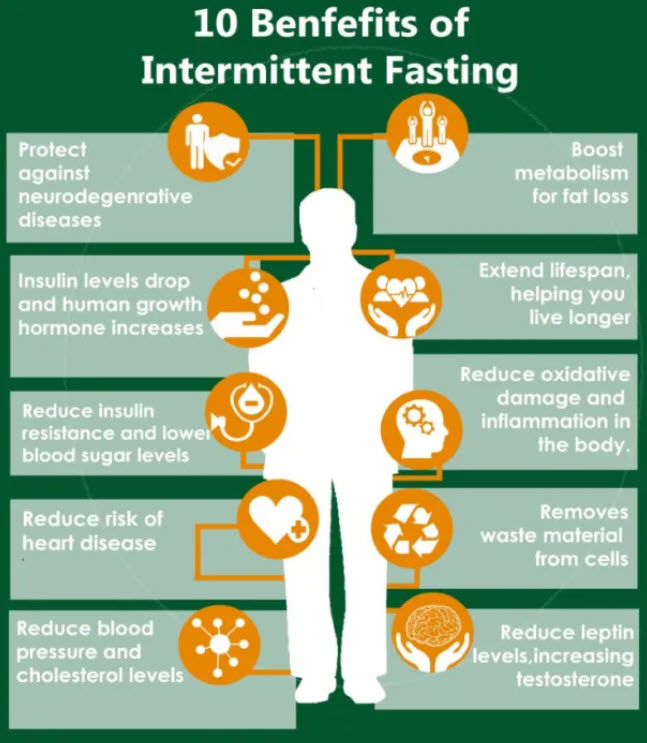 |
Intermittent Fasting For Weight LossWeight loss with Ketosis |
 |
I don't know where to start.I don't know where to start. |
 |
Intermittent Fasting-Weight Loss and Metabolic Switching.Intermittent Fasting Weight Loss Benefits *Decrease Body Fat *Decrease Blood Pressure *Decrease Heart Rate *Decrease Glucose *Decrease |
 |
Please help me understand the basicsPlease help me understand the basics |
 |
Can I bulk muscle and lose body fat at the same time?Can I bulk muscle and lose body fat at the same time? |
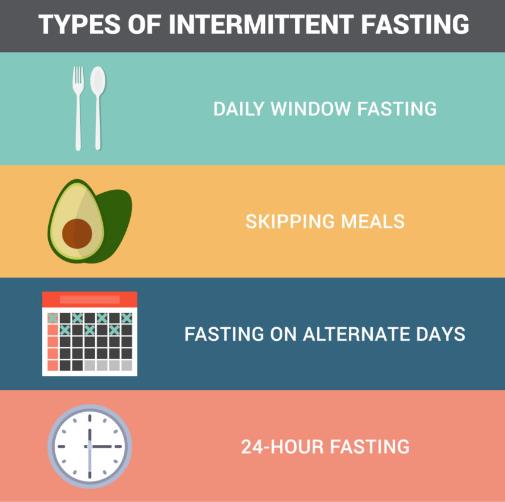 |
Intermittent Fasting For Pregnant WomenWhile intermittent fasting for pregnancy has its benefits, it can also be dangerous. Read on to learn more about the risks and benefits of.. |
 |
How to Do Intermittent Fasting – Intermittent Fasting Basics for Beginners – Dr.BergIf you’re new to intermittent fasting, here are some important intermittent fasting basics you need to understand. What to eat (Healthy |
 |
Is intermittent fasting harmful?Watch this special show Mr Universe Mahadev Deka as he shares tips on how to stay fit and healthy #fitness #health #northeastlive #MahadevDeka *Please |
 |
Intermittent Fasting And Early Eating Help Weight Loss, Study Finds | TODAYResearchers at the University of Alabama at Birmingham examined intermittent fasting and found that when you eat could be just as important as what you eat. |
 |
Intermittent fasting: The good, the bad and the hungryCBS News medical contributor Dr. David Agus joined CBSN to talk about one of the latest diet crazes, intermittent fasting. Dr. Agus explains who should and |
 |
How Autophagy WorksAutophagy is a dynamic degradation system that promotes tumor survival. It also promotes the growth of established tumors and facilitates metastasis. .. |
 |
Is intermittent fasting harmful?At Paleovsketo.com, we strive to provide you with the latest, most up-to-date information on various health topics such as the paleo diet, keto diet.. |
 |
Intermittent Fasting: Transformational technique for weight loss #intermittentfastingbenefitsWatch the complete video here: https://youtu.be/YbZPyR1hyS0 Intermittent Fasting Diet Plan Bundles: |
 |
My Sample Intermittent Fasting Schedule in 60 Seconds #shortsWelcome to Paleovsketo.com, the trusted source for up-to-date knowledge on lifestyle nutrition. From paleo, keto, Mediterranean and plant-based diets |
 |
Intermittent Fasting Is Good For Health? | ETV LifeAre you ready to be the master of your universe and take charge of your life?At Paleovsketo.com, we bring you only premium content on bringing.. |
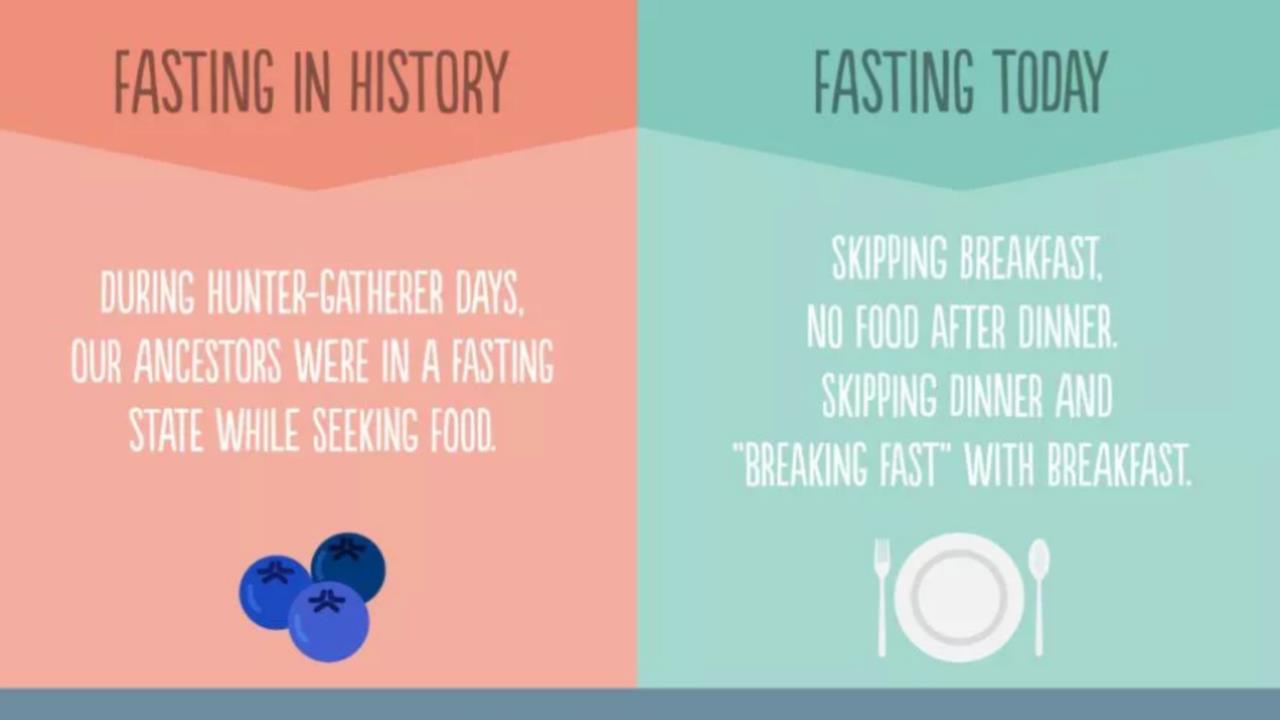 |
Is Skipping Breakfast Right For You?Skipping breakfast has a number of benefits, including the ability to lose weight, improve training performance, and increase growth hormone levels... |
 |
Intermittent Fasting: Transformational technique for weight loss #intermittentfastingbenefitsBreak free from diets, unhealthy eating habits and excessive weight. At Paleovsketo.com, we offer premium content to maximize your health lifestyle.. |
 |
Quick Weight Loss With Intermittent Fasting For Beginner's Ka REAL Formula Which No One TellsAt Paleovsketo.com, we bring you only the highest quality content on the lifestyle choices of Paleo, Keto, Mediterranean, and plant-based dieting,.. |
 |
7 Day Water Fast | NO FOOD ONLY WATERWelcome to Paleovsketo.com, the trusted source for up-to-date knowledge on lifestyle nutrition. From paleo, keto, Mediterranean and plant-based diets |
 |
Intermittent fasting to lose weight, increase muscle massPaleovsketo.com is a website devoted to providing premium content on the paleo diet, keto diet, intermittent fasting, weight loss, and eating healthy. |
 |
Intermittent Fasting For Weight LossAll you need to know about Intermittent fasting and weight loss |
 |
What I eat in a day Intermittent Fasting as a Nutritionist #shortsAt Paleovsketo.com, we strive to provide you with the latest, most up-to-date information on various health topics such as the paleo diet, keto diet.. |
 |
Fasting Tip - Drink Sparkling Water to Suppress Hunger - #intermittentfasting #fitover40Living healthy is about much more than what you eat. It's about finding a balance between body, mind, and spirit.At Paleovsketo, we believe this.. |
 |
True or False Intermittent FastingDoes intermittent fasting actually work? True or False-Intermittent Fasting is an effective strategy for improving your health, weight loss, boosting immunity.. |
 |
Warning! Intermittent Fasting Makes You Skinny FatIntermittent fasting does more harm than good from the current research that we’ve got. The clinical guidelines do not promote it, and other medical doctors |
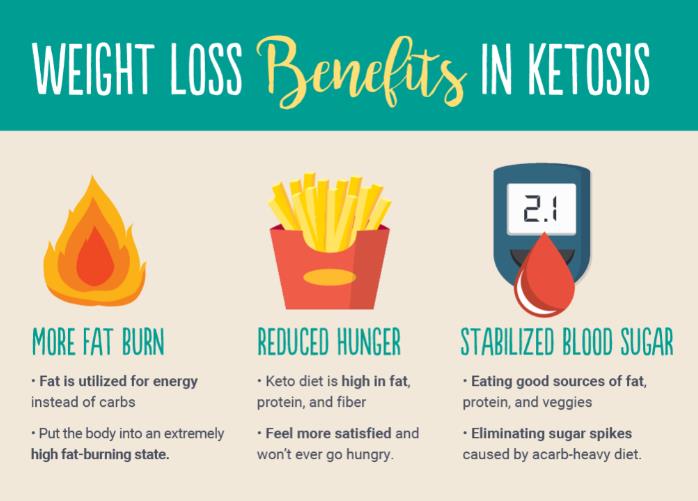 |
LIFE Fasting Tracker - LIFE Apps | LIVE and LEARNThe best, and free, intermittent fasting tracking app for iPhone and Android. Easy to use. Supports all fasting types. Fast with friends. Download for Free. |
 |
Warning! Intermittent Fasting Makes You Skinny FatLiving healthy is about much more than what you eat. It's about finding a balance between body, mind, and spirit.At Paleovsketo, we believe this.. |
 |
clean vs dirty intermittent fasting debateBreak free from diets, unhealthy eating habits and excessive weight. At Paleovsketo.com, we offer premium content to maximize your health lifestyle.. |
 |
1.9 Nutrition ABC's to improve your performance!Welcome to Paleovsketo.com, the trusted source for up-to-date knowledge on lifestyle nutrition. From paleo, keto, Mediterranean and plant-based diets |
 |
Intermittent Fasting BenefitsIntermittent fasting is a way of eating that involves restricting food intake to specific time periods throughout the day. It's becoming a popular.. |
 |
Intermittent Fasting: What is it, and how does it work?Intermittent fasting involves switching between fasting and eating on a regular schedule. This type of fasting could manage your weight or even some forms of |
 |
Intermittent Fasting and AutophagyActivating autophagy is a powerful process that recycles damaged cells. It helps maintain your health and can even help fight diseases. It is a.. |
 |
Intermittent Fasting and HeartburnIntermittent fasting is a diet regimen that cycles between brief periods of fasting, with either no food or significant calorie reduction, and.. |
 |
Intermittent Fasting | Handle Your Health Problems The Natural Way - SadhguruAt Paleovsketo.com, we understand that healthy eating can be a challenge. That’s why we strive to provide sound advice, recipes, and insight on the.. |
 |
Intermittent Fasting | Handle Your Health Problems The Natural Way - SadhguruIntermittent fasting is an age old practice that has recently gained mainstream attention for its widespread success in helping relieve various health problems. |
 |
Intermittent Fasting 101 — The Ultimate Beginner's GuideThis is a detailed guide to intermittent fasting (IF). Studies show that it can help you lose weight, improve health and perhaps even live longer. |
 |
Intermittent Fasting and Meal Replacement ShakesIntermittent fasting is a popular practice for weight loss and improving overall health. It involves restricting your eating schedule to certain.. |
 |
Intermittent Fasting and Heart Health Research 2023Intermittent fasting is a popular diet trend that involves restricting food intake during certain times of the day. It can include alternate day.. |
 |
Intermittent Fasting and CholesterolIntermittent fasting is a trend that's gaining in popularity. Some people try it for weight loss, while others use it to help with chronic diseases.. |
 |
Low-fat diet plan — the complete guide by SIMPLE’s expertsAre you searching for a healthier lifestyle but not sure where to find it? [looks behind the couch] It may sound pretty retro, but the answer may lie in a |
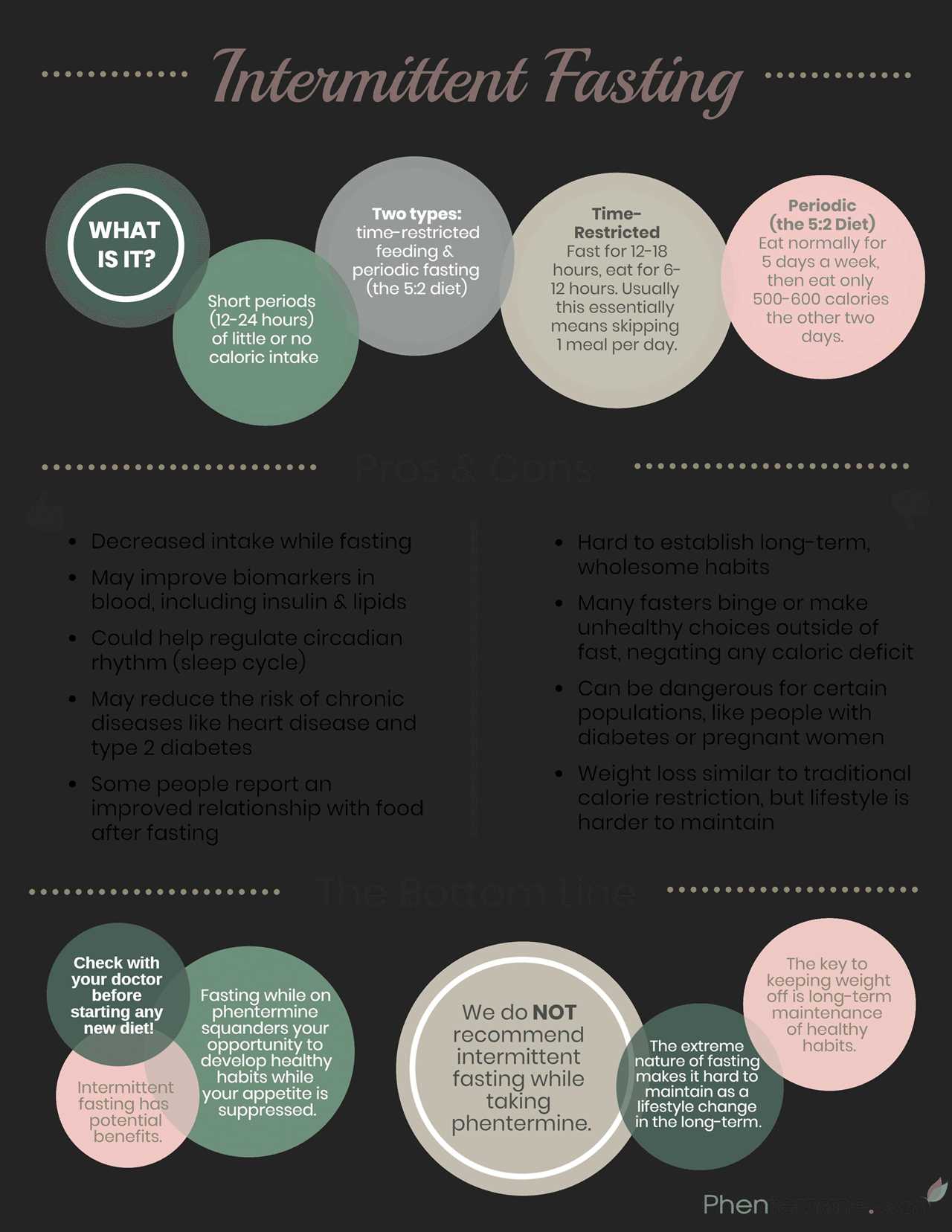 |
Is intermittent fasting good for you?Intermittent fasting isn't new, but it's gaining followers. What's the appeal? |
 |
16/8 intermittent fasting 7-day meal plan for beginnersIntermittent fasting (IF) can be super effective for losing weight and can have profound health benefits. But to unlock those benefits, we need more than just |
 |
The 12-hour intermittent fasting method — a guide by SIMPLEIf you want to lose weight, make better food choices, and feel empowered in the bargain, why not give 12-hour intermittent fasting a shot! Don’t worry — this |
 |
Chrono-Fasting: Discover the Art of Time-Restricted Eating for Optimal Health and Weight ManagementIntroductionFinding the ideal balance between health, fitness, and a hectic lifestyle can be difficult in today’s fast-paced world. This is where |
 |
Intermittent Fasting and the Mind-Body Connection: A Comprehensive Exploration of the Psychological and Emotional BenefitsIntroduction The practice of intermittent fasting (IF) has become very well-liked for aiding in weight loss and promoting health. Fewer people are aware of its |
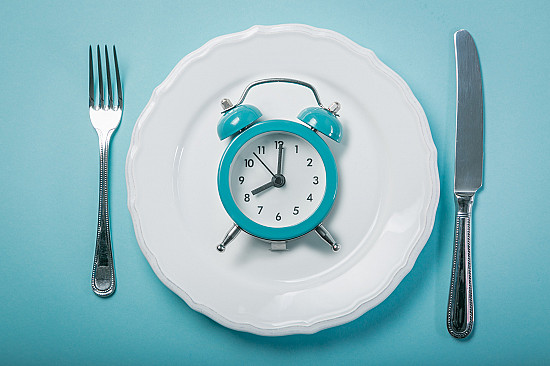 |
Intermittent fasting: The positive news continues - Harvard HealthHarvard research about Intermittent fasting ... |
 |
Intermittent Fasting for Athletes: Maximizing Performance, Recovery, and Overall HealthIntroduction Recent years have seen a significant increase in the acceptance of intermittent fasting (IF) as a viable strategy for promoting longevity, better |
 |
The Volumetrics diet — everything you need to know by SIMPLEIf you’re dieting but rarely feel full or satisfied with what you’re eating, it can feel like hunger is constantly on your tail as you try to lose weight. It’s |
 |
Intermittent Fasting and the Aging Process: A Deep Dive into Cellular Repair, Longevity, and Age-Related DiseasesIntroduction Recent years have seen a significant increase in interest in intermittent fasting (IF), a dietary strategy with many potential health advantages. |
 |
Combining Intermittent Fasting with Popular Diets: A Comprehensive Guide to Synergistic EffectsIntroduction The practice of intermittent fasting (IF) has become increasingly well-liked as a means of losing weight and enhancing health. IF involves |
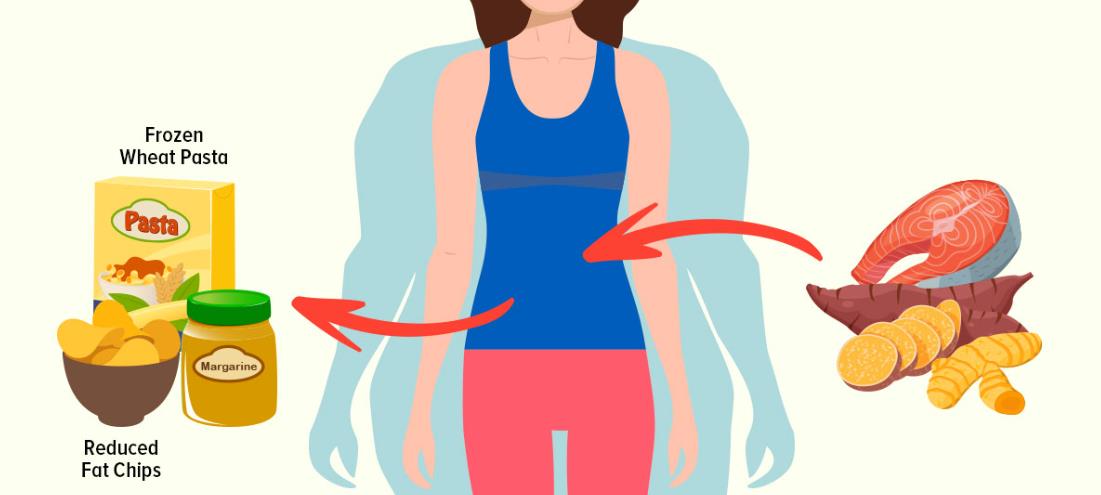 |
Six ways to do intermittent fasting: The best methodsIntermittent fasting is an increasingly popular diet option for weight loss. There are several programs, but this guide can help you find out which one is |
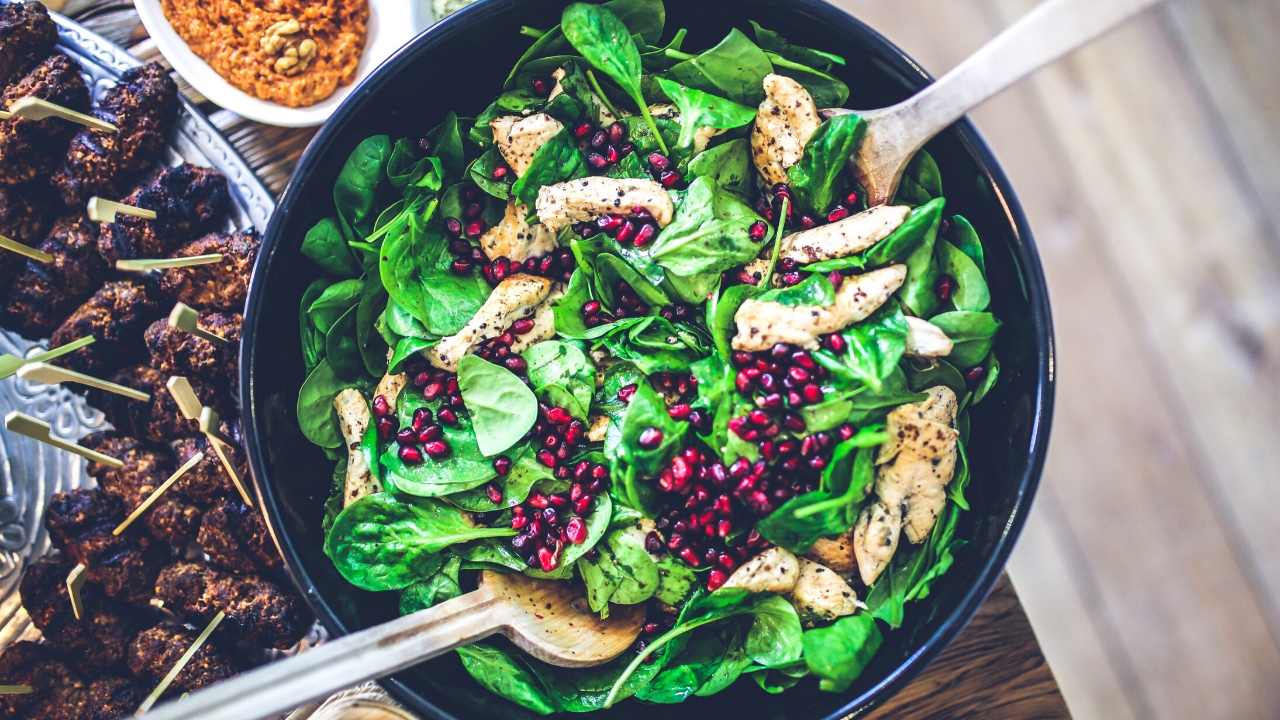 |
Does lemon water break a fast? — explained by SIMPLEWhen you’re intermittent fasting, drinking plain old water can get pretty boring, pretty fast. As a human with taste buds, you naturally want to bring a |
 |
Top Intermittent Fasting AdvantagesThere are many advantages to intermittent fasting as a strategy for weight loss. Intermittent fasting can work with any diet... |
 |
Weight Loss (Low Carbohydrate Diets)Low carb diets have often been used throughout history for weight loss. Although sometimes called a fad, low carb diets have actually more science... |
 |
The Key Factors of Weight LossWeight gain and obesity, like any medical disease, is multifactorial. This means that there are many factors that cause weight gain... |
 |
Diet A to Z: Intermittent FastingThe two-day-a-week diet: How intermittent fasting can help you lose weight and boost your health. |
 |
How Doctors Lose WeightHow do doctors lose weight? For their patients, doctors often advise following standard diets, but when trying to lose weight themselves... |
 |
Vacation Weight Loss PlanWhat is the best vacation weight loss plan? Most people [...] |
 |
Rat Model: Intermittent Fasting Normalizes High Blood Pressure Induced by Harmful Intestinal BacteriaPrevious studies have shown that a harmful combination of gut bacteria can cause high blood pressure (hypertension) in humans and other animals. Having a |
 |
Your D-I-E-T Meditation PlaylistIn my TEDx talk, I suggest recasting the noxious word “diet” into D-I-E-T — a reminder to ask ourselves “Did I Enrich Today?” One of the ways we can enrich…The |
 |
Holiday Health (Damage Control)With the holidays on us, maybe your intermittent fasting schedule isn’t as rigorous as it once was. That’s not necessarily a bad thing, because social |
 |
You Got a Zero.Zero’s not been my hero. Through grade school and college, zeroes used to be something of a monster in my mind. Teachers illustrated just how bad a zero is |
 |
Intermittent Fasting ExperiencesI took part in an energetic discussion of intermittent fasting experiences as part of the release of Women Action Takers Who Gained By Losing for which I wrote |
 |
How to Break a Fast: What to Eat After FastingHow to Break a Fast: What to Eat After Fasting Written by Stephen Anton PhD on May 15th, 2022 How to break a fast? This is an excellent question and one |
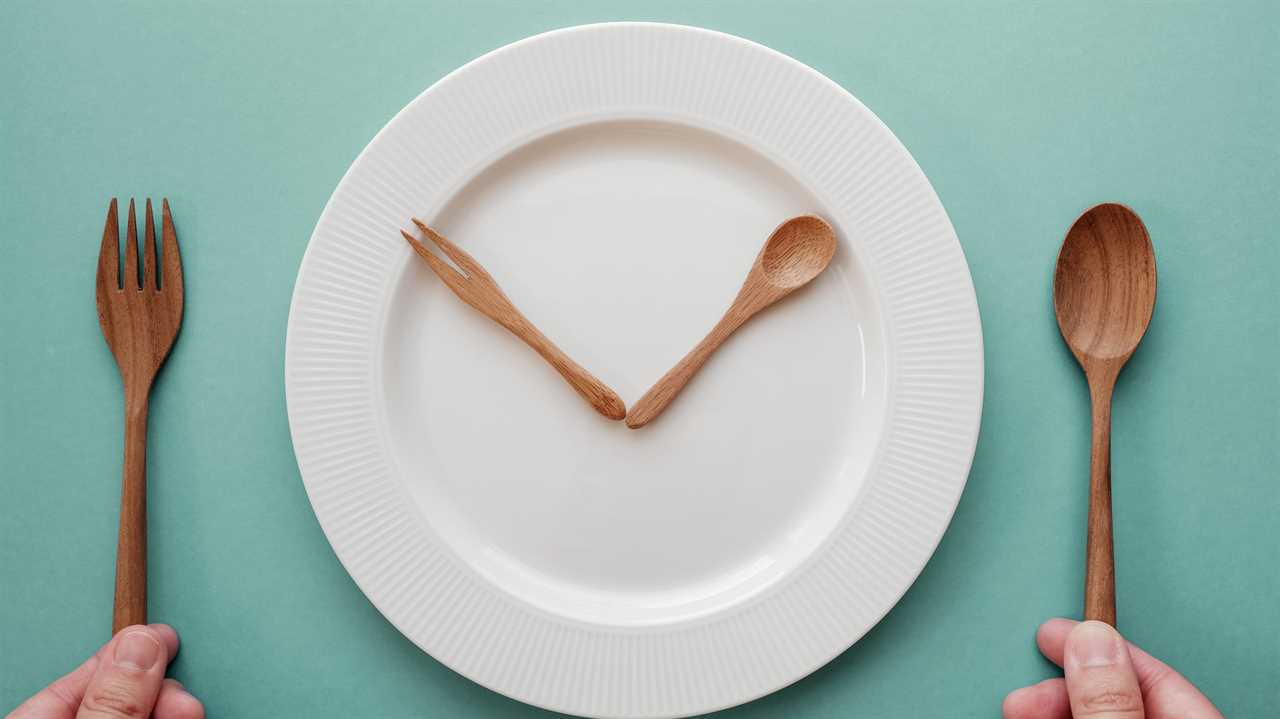 |
Intermittent fasting (IF): Your complete guide - Diet DoctorIntermittent fasting is popular, effective, and easy. This guide tells you how to get started with a successful intermittent fasting routine. |
 |
How to Believe in Yourself: 10 Tips for Becoming Your Best SelfHow to Believe in Yourself: 10 Tips for Becoming Your Best Self Guest Post by William Anton PhD on June 12th, 2022 William D. Anton, Ph.D is a renowned |
 |
36-Hour Fast (Monk Fast): Everything You Need to Know36-Hour Fast (Monk Fast): Everything You Need to Know Written by Stephen Anton PhD on July 5th, 2022 The 36-hour fast is a challenging fast in that it |
 |
18/6 Intermittent Fasting: Is It the Right Plan for You?18/6 Intermittent Fasting: Is It the Right Plan for You? Written by Stephen Anton PhD on November 29th, 2022 Intermittent fasting has become one of the |
 |
20/4 Intermittent Fasting: The Pros and Cons of a Longer Fast20/4 Intermittent Fasting: The Pros and Cons of a Longer Fast Written by Stephen Anton PhD on January 25th, 2023 There are so many different approaches to |
 |
5 Intermittent Fasting Methods, ReviewedIntermittent fasting comes in many shapes and forms. This article reviews its pros and cons so you can decide if it's worth a try. |

